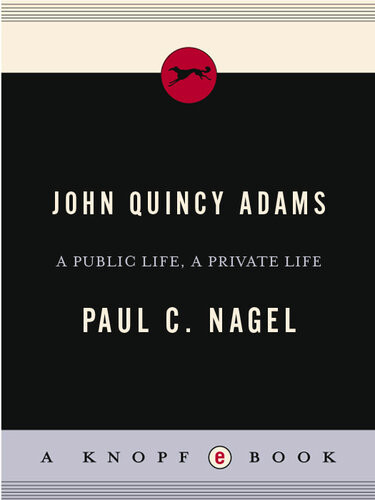

Most ebook files are in PDF format, so you can easily read them using various software such as Foxit Reader or directly on the Google Chrome browser.
Some ebook files are released by publishers in other formats such as .awz, .mobi, .epub, .fb2, etc. You may need to install specific software to read these formats on mobile/PC, such as Calibre.
Please read the tutorial at this link: https://ebookbell.com/faq
We offer FREE conversion to the popular formats you request; however, this may take some time. Therefore, right after payment, please email us, and we will try to provide the service as quickly as possible.
For some exceptional file formats or broken links (if any), please refrain from opening any disputes. Instead, email us first, and we will try to assist within a maximum of 6 hours.
EbookBell Team

4.8
44 reviewsFebruary 21, 1848, the House of Representatives, Washington D.C.: Congressman John Quincy Adams, rising to speak, suddenly collapses at his desk; two days later, he dies in the Speaker’s chamber. The public mourning that followed, writes Paul C. Nagel, “exceeded anything previously seen in America. Forgotten was his failed presidency and his often cold demeanor. It was the memory of an extraordinary human being—one who in his last years had fought heroically for the right of petition and against a war to expand slavery—that drew a grateful people to salute his coffin in the Capitol and to stand by the railroad tracks as his bier was transported from Washington to Boston.”
Nagel probes deeply into the psyche of this cantankerous, misanthropic, erudite, hardworking son of a former president whose remarkable career spanned many offices: minister to Holland, Russia, and England, U.S. senator, secretary of state, president of the United States (1825-1829), and, finally, U.S. representative (the only ex-president to serve in the House). On the basis of a thorough study of Adams’ seventy-year diary, among a host of other documents, the author gives us a richer account than we have yet had of JQA’s life—his passionate marriage to Louisa Johnson, his personal tragedies (two sons lost to alcoholism), his brilliant diplomacy, his recurring depression, his exasperating behavior—and shows us why, in the end, only Abraham Lincoln’s death evoked a great out-pouring of national sorrow in nineteenth-century America.
We come to see how much Adams disliked politics and hoped for more from life than high office; how he sought distinction in literacy and scientific endeavors, and drew his greatest pleasure from being a poet, critic, translator, essayist, botanist, and professor of oratory at Harvard; how tension between the public and private Adams vexed his life; and how his frustration kept his masked and aloof (and unpopular). Nagel’s great achievement, in this first biography of America’s sixth president in a quarter century, is finally to portray Adams in all his talent and complexity.